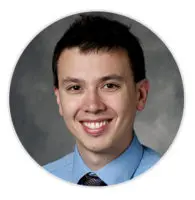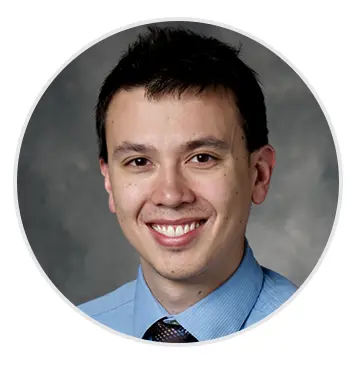Researcher Spotlight: David Kurtz, MD
Stanford University

Dr. Kurtz began his research in lymphoma as a medical student, gaining interest in the growing body of knowledge about lymphoma biology. However, as a resident, Dr. Kurtz was surprised to discover that the translation of new knowledge about lymphoma biology into the clinic was a slow process – slower than he had hoped for. “Patients treated with chemotherapy waited months to know if they would have a response to their therapy. And those who didn’t respond went through months of intensive treatment only to discover they needed even more alternative therapy,” he notes. In an effort to change this, Dr. Kurtz applied to the LRF Clinical Research Mentoring Program (LCRMP) with a project to define levels of lymphoma-specific DNA in the blood plasma of non-Hodgkin lymphoma (NHL) patients, in the hopes of establishing an effective, rapid method of determining whether a patient is responsive to their current therapy. “By creating tests to rapidly decide if a patient will or will not respond to therapy, we can begin to rationally select personalized therapies for patients,” Dr. Kurtz says. His project has led to a collaboration with fellow LRF Scholar Jason Westin.
Dr. Kurtz received his MD from Mayo Medical School in Minnesota before completing his residency at Stanford University Medical School, where he is currently a postdoctoral fellow in hematology and oncology and a graduate student in bioengineering. He notes his selection as an LRF Scholar will be helpful in supporting the crucial process of moving his laboratory research into the clinic. “New biomarkers for lymphoma need to be validated before they are used widely in the clinic. The LCRMP will accelerate the translation of my research from the lab to clinical validation,” he says. “Additionally support from LRF will also be indispensable as I begin to build an investigative career in lymphoma.”
Dr. Kurtz advises newly diagnosed patients that “the most important person in your care team is yourself. Patients who have the best outcomes are involved in their own care and stay active.” He adds that he draws on a lesson from his medical school days to remind him of the focus of his research. “At the Mayo Clinic, we were taught a mantra from day one –’the needs of the patient come first.’ As I pursue my career in academic medicine, I try to keep that phrase in the forefront of my mind. While science has been a passion of mine since childhood, at the end of the day, it is the impact on patients that really matters.”


